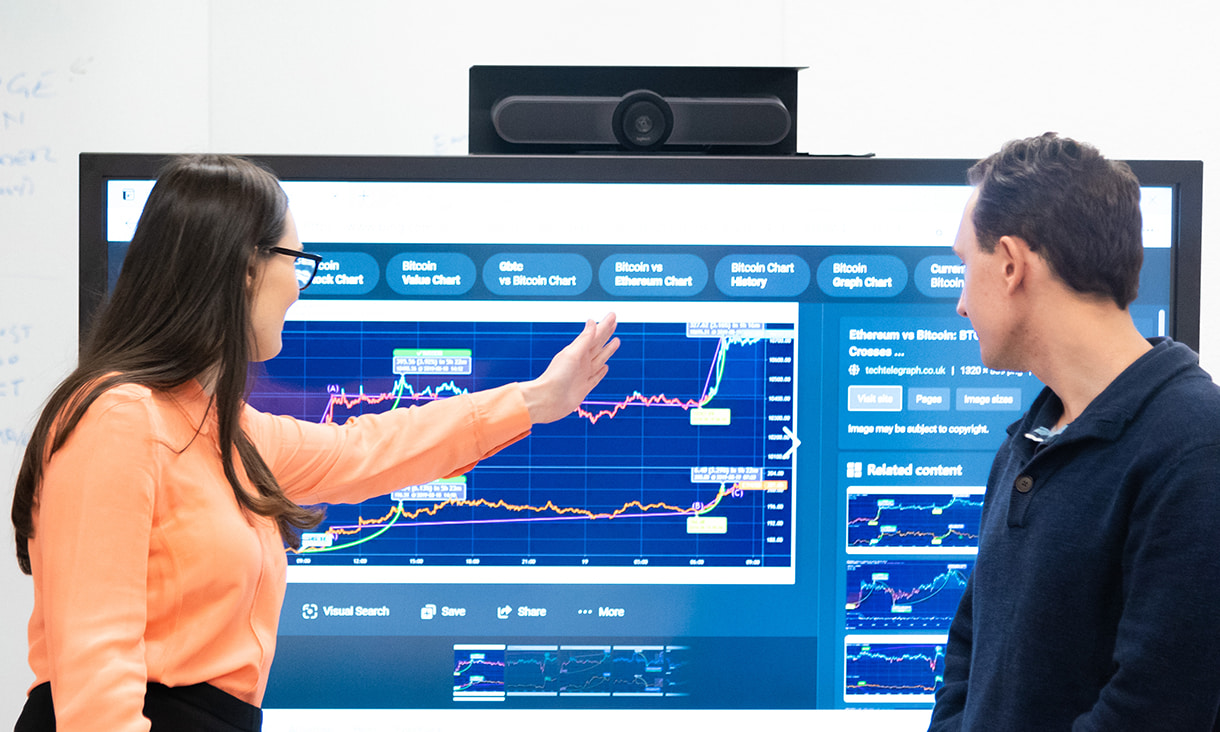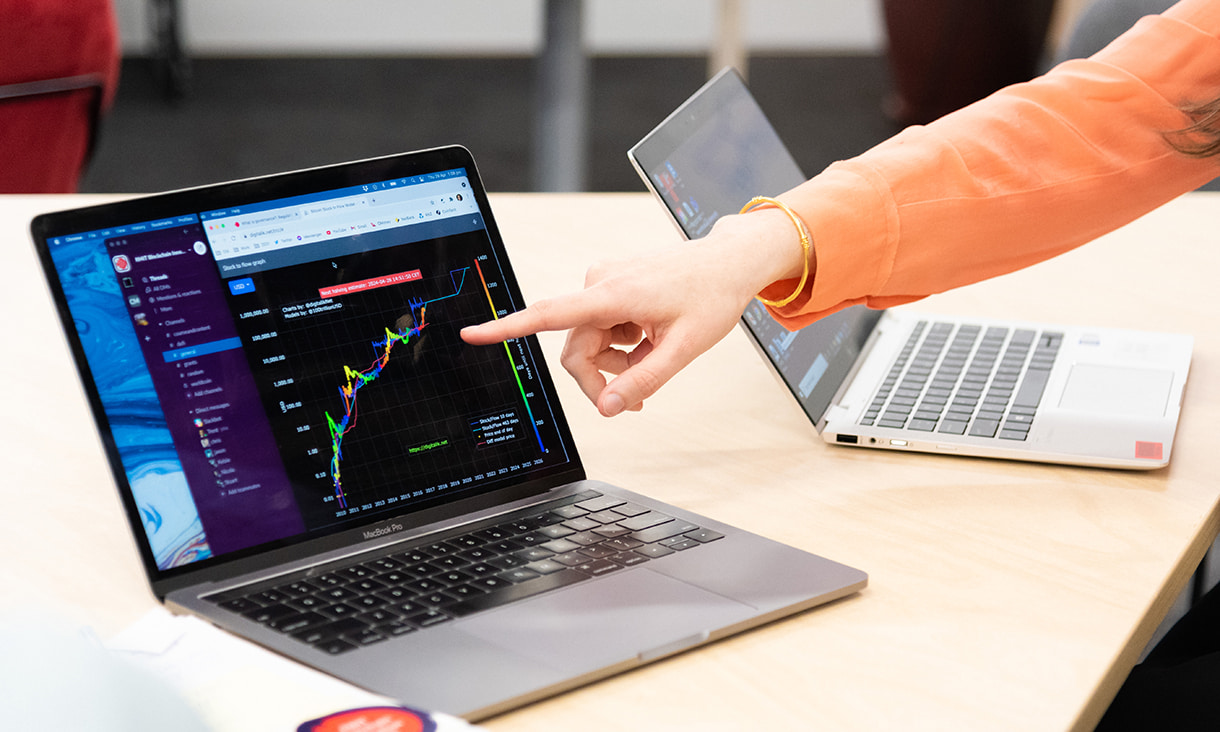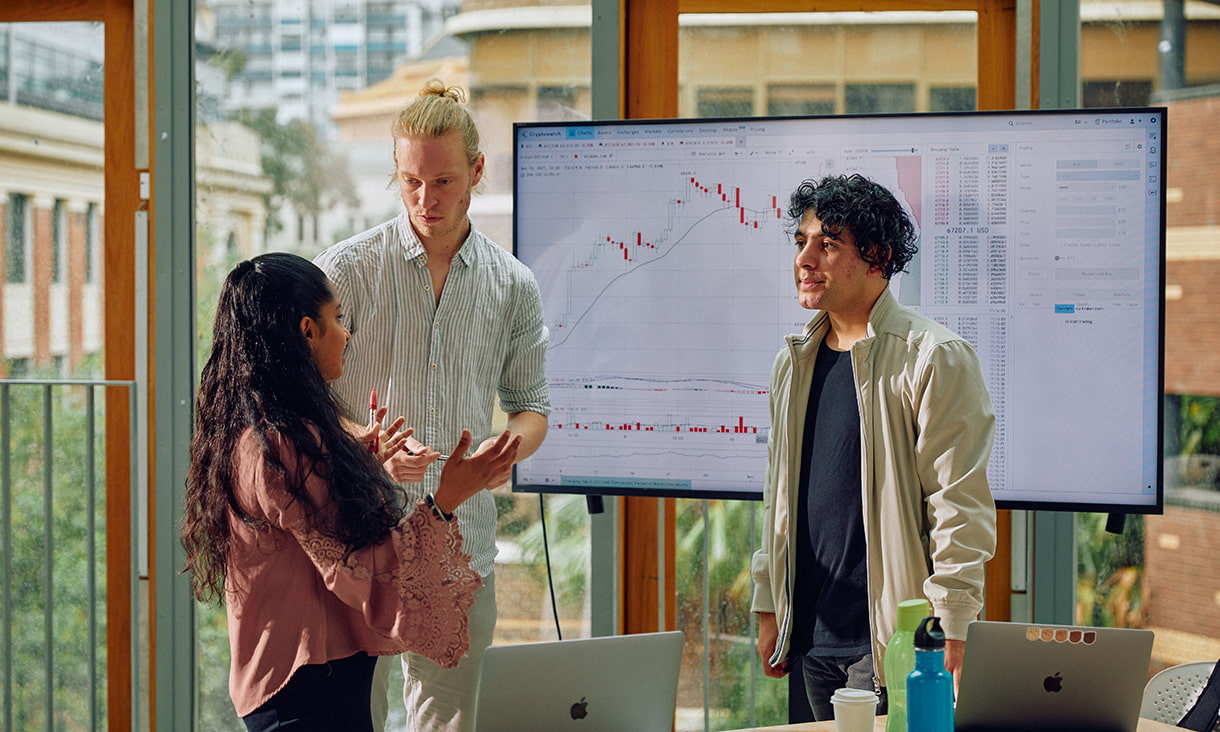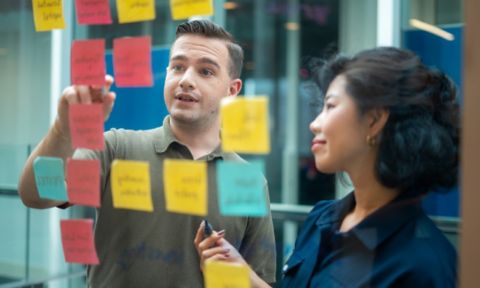For organisations at the intersection of business and technology, it’s less about asking, “What is blockchain?” and more about, “When can blockchain be integrated?”
Blockchain technology is already improving the way businesses operate, from banking and finance, agriculture and supply chain, to government, healthcare and education. As a growing number of organisations adopt the technology, blockchain is increasingly becoming a transferable skill.
Forbes notes, “As more and more blockchain projects begin to demonstrate usefulness […] the number of projects under development will rapidly increase, putting those who have been savvy enough to upskill themselves in control of a sellers’ market.”
In recent years the demand has only grown for experts with skills in blockchain across the business sector with IT skills assessment platform DeSkiller reporting that the demand for blockchain skilled professionals grew by 552% in 2022.1
At RMIT you can gain the skills to meet the demand without even having a background in the tech sector.The Graduate Certificate in Blockchain Enabled Business covers blockchain and the economy, crypto finance and fintech, building and using smart contracts, and blockchain for trade, as well as the legal, ethical, accounting and regulatory aspects of new technologies.







